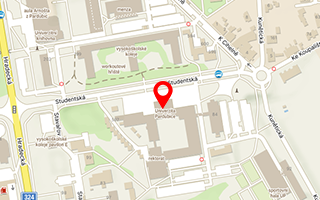| Study programme: | Transport Means and Infrastructure |
| Study specialization: |
1. Transport Means 2. Transport infrastructure – structural 3. Electrotechnics |
| Form of study: | full-time, distance-study |
| Standard length of study: | 4 years |
Characteristics of the specialization:
The aim of the study programme is the preparation of highly educated graduates who are able to solve the scientific and research tasks of basic and applied research related to issues of technical practice, especially in vehicles, electrical and electronic systems in transport and transport structures.
Graduates are able, independently and in teams, to solve scientific and research issues in technical fields of transport and related fields such as engineering, material engineering, electrical engineering, electronics, automation, environment, urban planning, geotechnics, information technology and energy. Whether theoretically or experimentally. They are also able to tackle the most demanding issues in terms of safety, reliability and durability of various means of transport and related technologies, electrical systems in transport, transport structures and transport equipment. They can formulate an issue, propose an optimal solution, solve it rationally with the help of theoretical knowledge and available technical means and then present the results. They are able to independently use computer technology for analysis, design, development and documentation of studied technical systems in transport. Their research results are published and presented at the university and abroad.
Graduates of the study programme Transport Means have a deep theoretical knowledge in the field of road transport, especially in the theory of movement and safety of vehicles, environmental impacts of vehicles, analysis of vehicle strength and dynamics and in vehicle theory. They can perform theoretical and experimental analyzes of complex issues in these areas, come up with new knowledge and solutions and propose corrective actions.
Graduates of Electrical and Electronic Systems in Transport have, with regards to the focus of their dissertation, deep knowledge of electrical traction systems in road and rail vehicles, dependent traction power systems, electromobility, safety control systems in transport and automation, radiocommunication and sensor technology in vehicles and systems.
Graduates of the Transport Infrastructure study programme are highly qualified specialists with deep theoretical and practical knowledge in the design, planning, assessment and implementation of transport structures. They can utilize simulation calculations and performed experiments to independently solve the most complex geotechnical cases related to the foundation of transport structures. They can also utilize scientific methods and procedures to solve complex fatigue and stability issues related to bridges and other artificial structures in road and rail communication networks.

